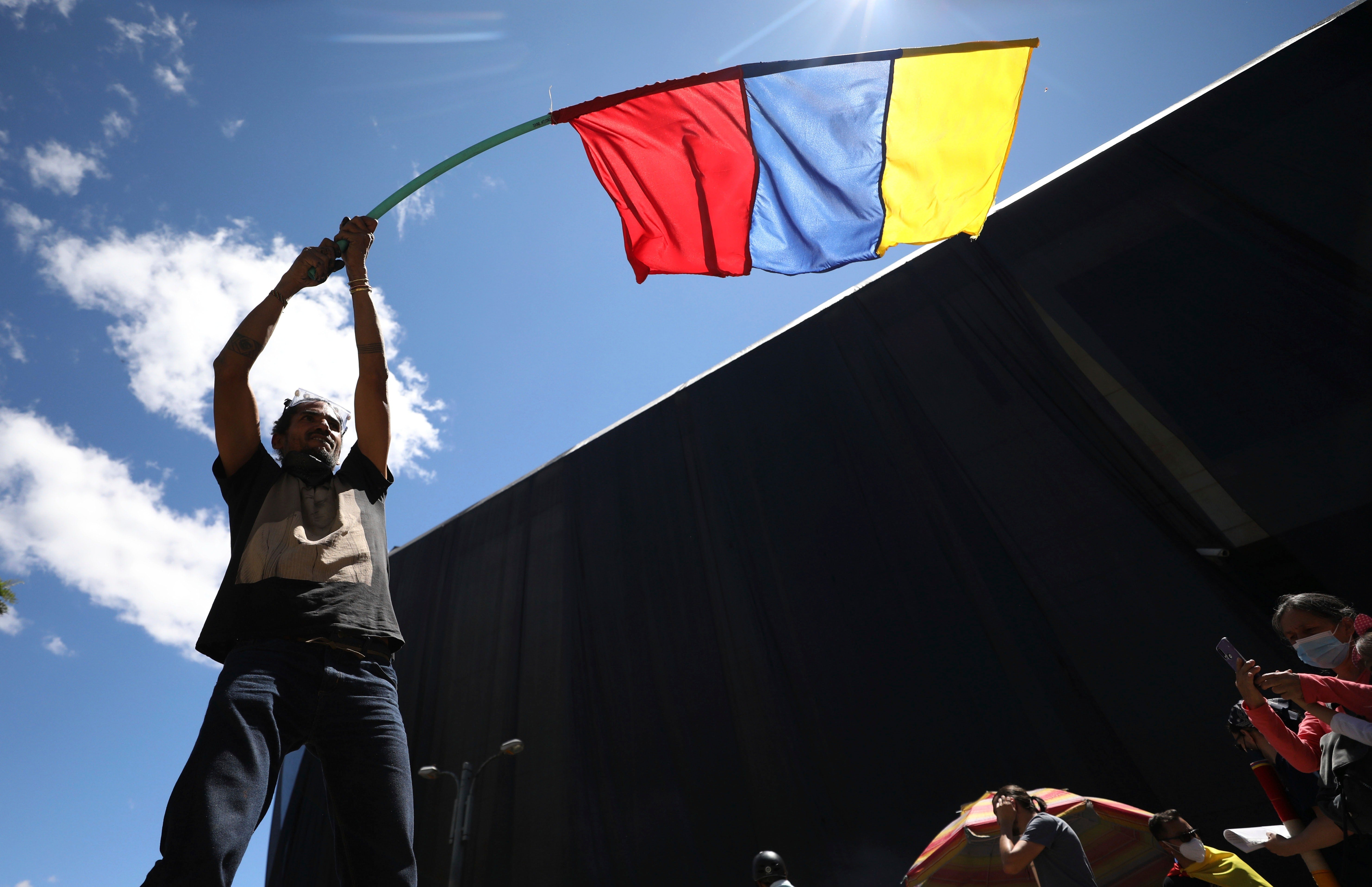Human rights ombudsman says 58 killed in Colombia protests
Colombia's human rights ombudsman says 58 people have been killed during anti-government protests that began five weeks ago

Your support helps us to tell the story
From reproductive rights to climate change to Big Tech, The Independent is on the ground when the story is developing. Whether it's investigating the financials of Elon Musk's pro-Trump PAC or producing our latest documentary, 'The A Word', which shines a light on the American women fighting for reproductive rights, we know how important it is to parse out the facts from the messaging.
At such a critical moment in US history, we need reporters on the ground. Your donation allows us to keep sending journalists to speak to both sides of the story.
The Independent is trusted by Americans across the entire political spectrum. And unlike many other quality news outlets, we choose not to lock Americans out of our reporting and analysis with paywalls. We believe quality journalism should be available to everyone, paid for by those who can afford it.
Your support makes all the difference.Fifty-eight people have been killed during anti-government protests that began in Colombia five weeks ago and have also led to roadblocks and clashes with police, the country’s human rights ombudsman said Monday.
In a report presented to the Inter-American Commission on Human Rights, the ombudsman office also said it had received more than 400 allegations of human rights violations during the protests that started April 28, including cases of police beatings, arbitrary detentions and sexual abuses of protesters in police custody.
Colombia’s police have come under scrutiny from human rights groups for their behavior during the protests, in which videos have shown police shooting at protesters or standing by while armed civilians fired at demonstrators.
The situation prompted a delegation from the Inter-American Commission for Human Rights to visit Colombia this week, where it will meet with government officials, protest victims and organizations that have accused the police of using excessive force during the protests.
The delegation said Monday that it will deliver recommendations for the government to follow up on at the end of its visit. It could also set up an independent commission of experts to track progress on human rights issues.
According to Temblores, a human rights group based in Bogota police have been directly involved in 45 deaths during the protests.
Human Rights Watch says it has documented nine cases in which police killed protesters with gunfire and four other cases in which police officers killed protesters using tear gas canisters and other devices designed to control crowds. The watchdog group says it is looking into dozens more cases of alleged police killings.
Colombia's attorney general has said it is investigating police involvement in at least three deaths of protesters and has launched a probe into a recent incident in the city of Cali during which officers protected armed civilians that shot at demonstrators.
On Sunday, President Ivan Duque announced a proposal to reform Colombia’s police forces that includes putting body cameras on officers and creating a human rights directorate within the police to seek outside advice on policies. The government also said it will improve methods through which citizens can file complaints.
Protesters however, have said they want police officers placed under the jurisdiction of civilian courts. Officers who commit crimes while on duty in Colombia are currently judged by military tribunals, which are often staffed by their own peers.
The current wave of protests started over a plan to increase taxes. The government withdrew the plan, but the protests have continued, fueled by growing inequality and unemployment during the pandemic.
Protest leaders are demanding a new set of social and economic policies that include a basic income plan for poor households and more spending on public education. They also want the police to be transferred from the Ministry of Defense to the Ministry of the Interior.
Negotiations between protest leaders and the government have been slow to get off the ground. On Sunday, a group of unions and associations that has spearheaded the protests walked away from talks with the government over Duque’s recent decision to send soldiers to 13 cities to remove roadblocks and control violent protests.
The government has asked the group to dismantle and reject roadblocks that have caused food shortages in some parts of the country and forced factories to stop working.